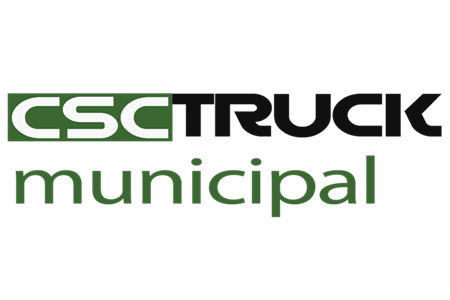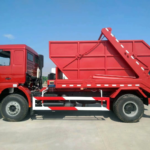Introduction
In an era where environmental conservation and sustainability have become crucial priorities, innovative solutions are needed to tackle various challenges, including maintaining clean streets and managing waste effectively. Sweeper trucks have emerged as essential tools in urban areas worldwide, offering significant environmental benefits. These powerful machines play a vital role in keeping our streets clean, reducing pollution, and contributing to a healthier, greener environment. In this article, we will explore the environmental benefits of sweeper trucks and their impact on creating a clean and green future.

Reduced Air Pollution
One of the primary environmental benefits of sweeper trucks is their ability to reduce air pollution. These trucks are equipped with advanced air filtration systems that capture fine particulate matter, dust, and debris from road surfaces. By removing these pollutants, sweeper trucks prevent them from becoming airborne, thus improving air quality. Studies have shown that effective street cleaning with sweeper trucks can significantly reduce the concentration of harmful particulate matter, which is known to have adverse effects on human health and the environment.
Moreover, by minimizing the amount of loose debris on the roads, sweeper trucks contribute to the reduction of vehicle emissions. When vehicles drive over dusty or debris-filled surfaces, their tires kick up particles into the air, contributing to air pollution. Sweeper trucks play a crucial role in removing these particles, thereby reducing the overall pollution generated by vehicles.

Preventing Water Pollution
Sweeper trucks also play a vital role in preventing water pollution. In urban areas, rainwater runoff can carry various pollutants, including oil, chemicals, and litter, into storm drains and ultimately into rivers, lakes, and oceans. By regularly sweeping the streets, these trucks prevent debris and pollutants from being washed away into water bodies. This not only protects aquatic ecosystems but also ensures the availability of clean water for communities.
Furthermore, sweeper trucks equipped with specialized water systems can also actively clean the roads using water spray and vacuum technology. This method helps to remove oil and chemical residues that may have accumulated on the pavement, preventing them from being washed into the waterways during rainfall. By doing so, sweeper trucks contribute to preserving the quality of our water resources and safeguarding the health of aquatic life.

Promoting Waste Management and Recycling
Sweeper trucks are not just effective in removing visible debris from the streets; they also play a crucial role in waste management and recycling efforts. Many modern sweeper trucks are designed with compartments that allow for the separation of different types of waste collected from the streets. This feature enables recyclable materials to be segregated from general waste, facilitating their proper disposal and recycling.
By effectively collecting and sorting waste, sweeper trucks contribute to reducing the amount of waste sent to landfills. Recycling materials such as plastics, glass, and paper conserves natural resources, reduces energy consumption, and minimizes greenhouse gas emissions. Sweeper trucks, therefore, play a significant role in promoting a circular economy and minimizing the environmental impact of waste disposal.

Noise Pollution Reduction
In addition to their contribution to reducing air and water pollution, sweeper trucks also help combat noise pollution. These vehicles are designed with noise-reduction features, including quieter engines and advanced muffler systems. As a result, they produce significantly lower noise levels compared to traditional street cleaning methods, such as manual sweeping or using leaf blowers.
The reduction in noise pollution provided by sweeper trucks contributes to improving the overall quality of life in urban areas. Lower noise levels have a positive impact on public health, reducing stress levels, improving sleep quality, and promoting a more peaceful environment for residents.

Conclusion
Sweeper trucks have proven to be indispensable in maintaining clean and healthy urban environments. The environmental benefits they provide, including reduced air pollution, prevention of water pollution, waste management, and noise pollution reduction, contribute significantly to creating a clean and green future. These powerful machines play a vital role in keeping our streets clean, ensuring the well-being of both humans and the environment.
By effectively capturing fine particulate matter and dust from road surfaces, sweeper trucks reduce air pollution and improve air quality. The removal of these pollutants prevents them from becoming airborne and causing respiratory issues for humans and harm to the environment. Furthermore, by minimizing loose debris on the roads, sweeper trucks reduce vehicle emissions, contributing to overall pollution reduction and a healthier atmosphere.
In urban areas, rainwater runoff poses a significant threat to water bodies due to its potential to carry pollutants. Sweeper trucks play a crucial role in preventing water pollution by sweeping the streets and preventing debris and pollutants from being washed into storm drains and waterways. Their water systems further aid in removing oil and chemical residues, ensuring cleaner water resources and preserving the health of aquatic ecosystems.
Sweeper trucks also actively contribute to waste management and recycling efforts. With their compartments designed for waste separation, these trucks allow for the proper disposal and recycling of different types of waste collected from the streets. By promoting recycling and minimizing the amount of waste sent to landfills, sweeper trucks help conserve natural resources, reduce energy consumption, and mitigate greenhouse gas emissions.
Moreover, sweeper trucks have an additional advantage in the reduction of noise pollution. Their quieter engines and advanced muffler systems significantly decrease noise levels compared to manual sweeping or leaf blowers. This reduction in noise pollution positively impacts the quality of life in urban areas, creating a more peaceful and pleasant environment for residents.
In conclusion, sweeper trucks are a crucial tool in achieving clean and green cities. Their environmental benefits extend to reducing air and water pollution, promoting waste management and recycling, and minimizing noise pollution. By employing these machines, we can create healthier and more sustainable urban environments that prioritize the well-being of both humans and the planet. As we continue to prioritize environmental conservation, the role of sweeper trucks will remain pivotal in our journey toward a cleaner and greener future.

Contact us for this municipal truck or similar trucks: [email protected] Call us or What's APP us: +86 189 4292 3930







